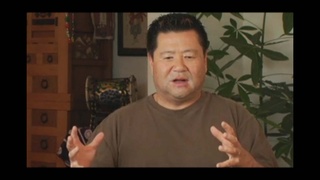Interviews
Returning to Maui during baseball off-seasons to remind himself of the hard work required to succeed
After the season's over I'd be winning the batting title. I come to Honolulu, I catch the next plane, I'll go to Maui and see the old house that I used to live, or the cane field when I was 12, 14 years old where I used to cut grass and all that. Just to go see that place because, see, I didn't want to forget those things because I saw how my father used to work before and that gave me something that when I go back to Japan I could try harder. [It] give me a good incentive to be a much better ball player. So, you know, sometimes ball players, they do well, they make good money. They forget about how they suffered when they were kids. But, all my life, even today, even I'm retired, but I never forgot that.
Date: December 16, 2003
Location: Hawai'i, US
Interviewer: Art Hansen, John Esaki
Contributed by: Watase Media Arts Center, Japanese American National Museum.
Explore More Videos


Support from the Japanese American community
(b.1971) Professional figure skater and Olympic gold medalist.

Heightened awareness of identity as a Japanese American
(b. 1955) Lawyer

Reasons for conformity and competitiveness in Gardena, California
(b. 1946) Lawyer







Advantages of being Nikkei (Spanish)
(b. 1950) Nisei Chilean, Businessman


Childhood shame for being Nikkei in Enumclaw, Washington
Judge, only Japanese American to serve on CWRIC.

On the Impact of the Camp Experience
(b. 1942) The first Asian American woman judge

Thoughts on the term, "Nikkei"
(b. 1949) Musician and arts educator and adminstrator.
